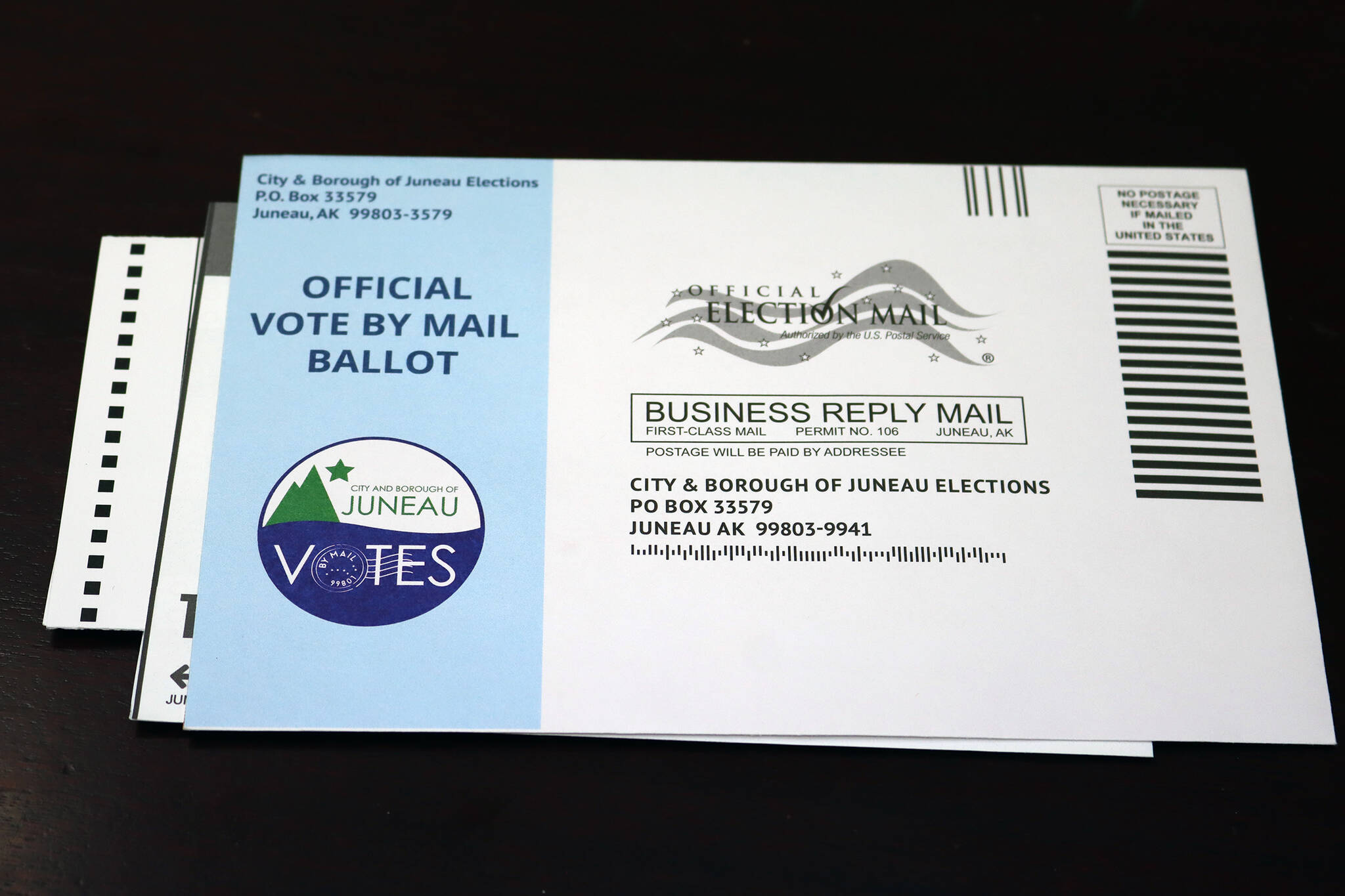This article has been updated to correct the attribution of a quote.
By Mark Sabbatini
Which is the greater threat: Allowing incomplete petition booklets with personal information of signers to remain in the possession of signature collectors, or making at least limited data publicly accessible by requiring booklets to be turned over to the city?
That was the main point of contention in changes to Juneau’s election code categorized as “cleanup language” by City Clerk Beth McEwen. The changes also clarify existing language about voting centers and secure ballot drop boxes, and all residents to use touch-screen ballots originally intended for people with disabilities.
During the presentation of proposed changes to the Assembly’s Committee of the Whole on Monday, Assembly member Michelle Bonnet Hale noted names of people signing a petition to recall Gov. Mike Dunleavy last year were posted on Twitter with harmful effects.
“I believe that was shut down fairly quickly, but there was a lot of concern in that recall campaign for retaliation and there was retaliation,” she said. “Some people were removed from positions for participating in that campaign.”
Locally there have been a number of voting petition booklets that were never returned, McEwen said. Among the personal information provided by signees are identifying information such as driver license and/or the last four digits of Social Security numbers.
“To have that out there and not returned to the city is a great concern of mine,” she said.
Changing the election code to require all booklets be turned into the city within 60 days of being issued, including those within insufficient signatures to qualify for the ballot, means the city can redact identifying personal data before making them public, McEwen said.
But Assembly Member Maria Gladziszewski expressed concern about implementing the requirement, noting those gathering signatures typically make copies of the ballot booklets in case disputes about their validity arise.
“They already have a copy of your personal information,” she said. “The reason they choose not to submit them to the city is because if they do people can request them.”
The proposed revisions to the election code also ensures all voters can use touch-screen voting devices obtained by the city for the purpose of providing access to people with disabilities.
“Think of the tablet as a great big electronic pen,” McEwen said.
In addition, the changes clarify procedures for collecting and securing ballots daily from voting centers and from secure ballot drop boxes that are open 24/7 from 15 days prior to election day until the close of polls at 8 p.m. on election day, according to McEwen, who noted the past two elections were conducted primarily by mail.
“This language is to enable that to occur and sets out the process by which security seals and all the security protocols are implemented in that process,” she said.
The committee agreed to send the proposed changes to the Assembly for initial consideration at its May 16 meeting, allowing public comment before considering action at a subsequent meeting.
Mayor Beth Weldon was among the Assembly members agreeing that overall the proposed election code changes presented by McEwen are positive.
“She certainly tries to make it fair and equitable, and give everybody a chance to vote,” Weldon said.
• Contact reporter Mark Sabbatini at mark.sabbatini@juneauempire.com.

